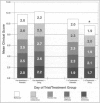Abstract
A clinical trial was conducted to evaluate the safety and efficacy of the nonsteroidal anti-inflammatory drug meloxicam in dogs with chronic osteoarthritis. Forty clinical cases were enrolled in the 2-phase study. Phase 1 compared therapeutic efficacy and tolerance of meloxicam or placebo for 1 week. Phase 2 involved a 4-week evaluation of the drug's clinical efficacy and tolerance. Clinical efficacy was evaluated by using a scoring system that assessed specific lameness, general stiffness, painful rise, exercise intolerance, and behavior. Evaluations demonstrated significant reductions (P < 0.05) in clinical signs of osteoarthritis following 4 weeks of drug therapy. Side effects were minimal in extent and duration. The drug was accepted without problems in the majority of cases. The findings of this investigation suggest that the efficacy, tolerance, and formulation of meloxicam oral suspension make it well suited for the treatment of chronic osteoarthritis in the dog.
Full text
PDF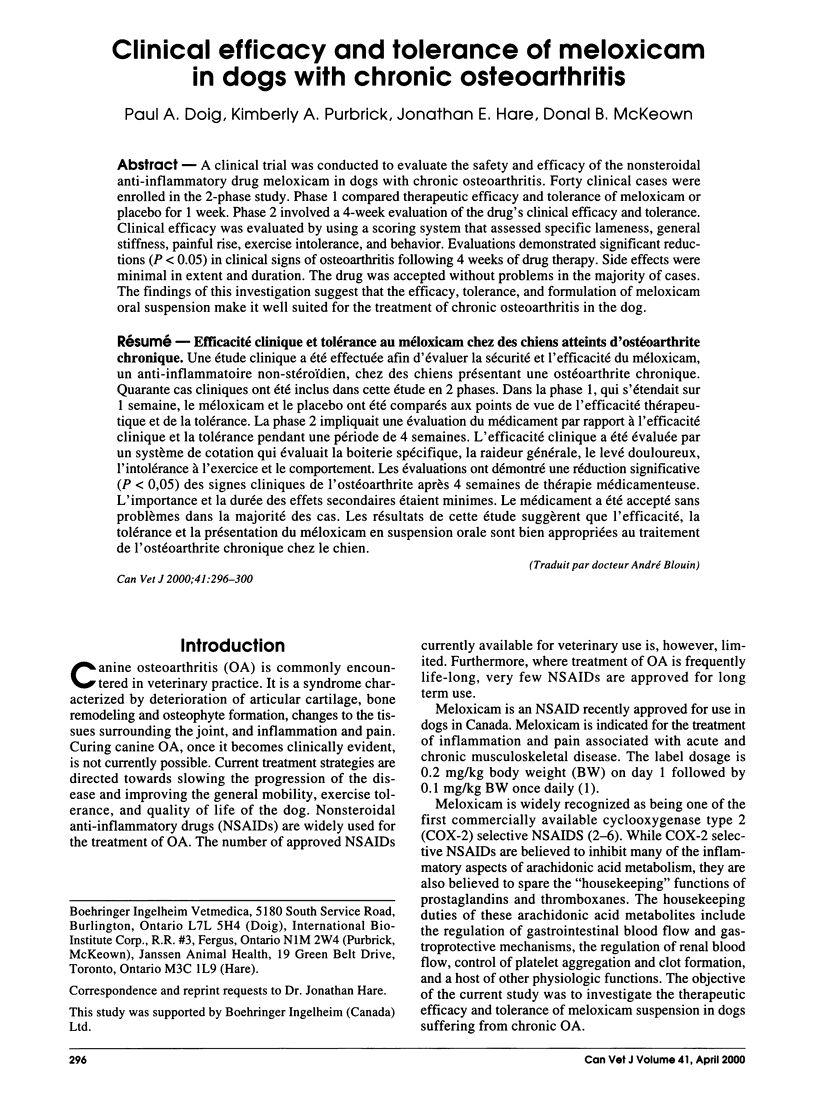
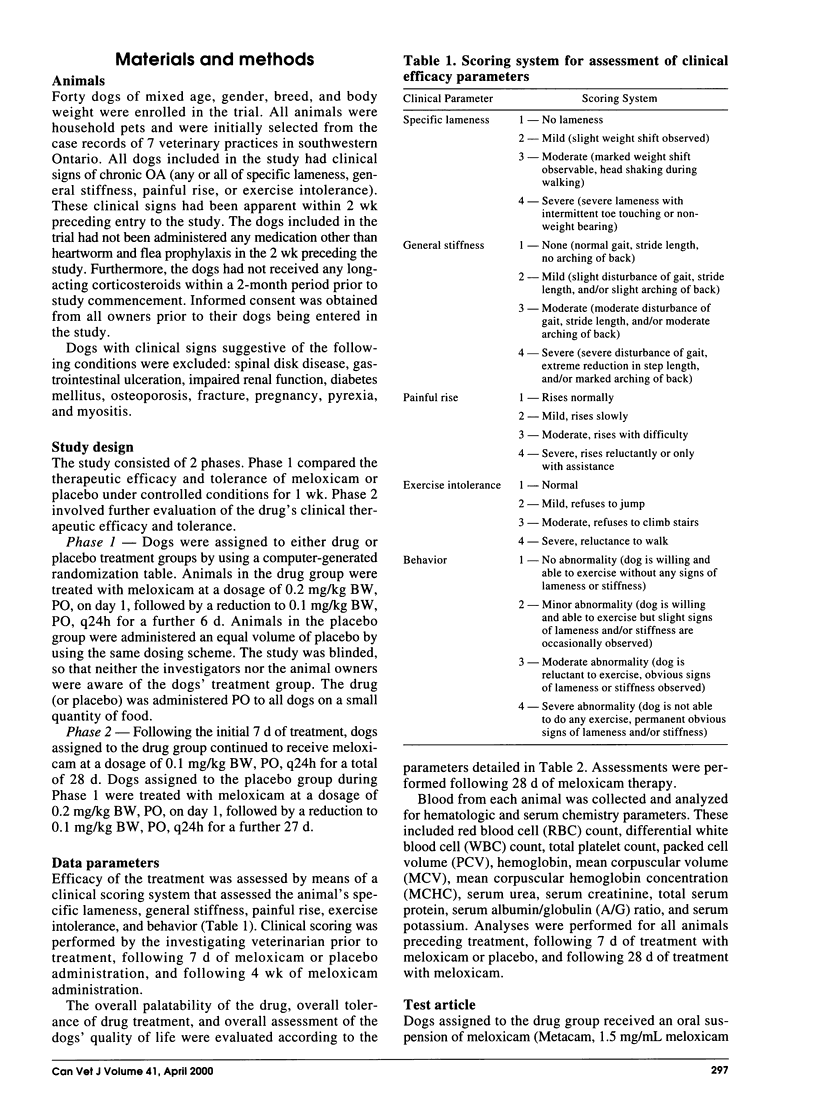
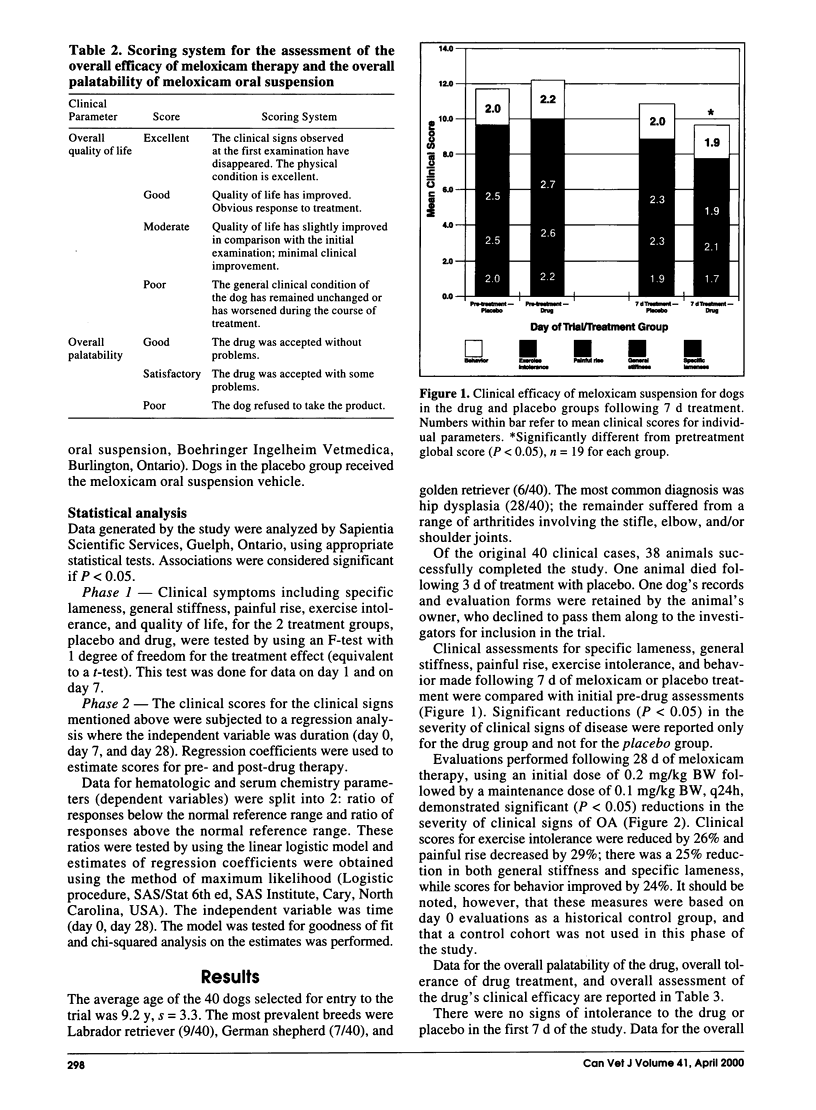
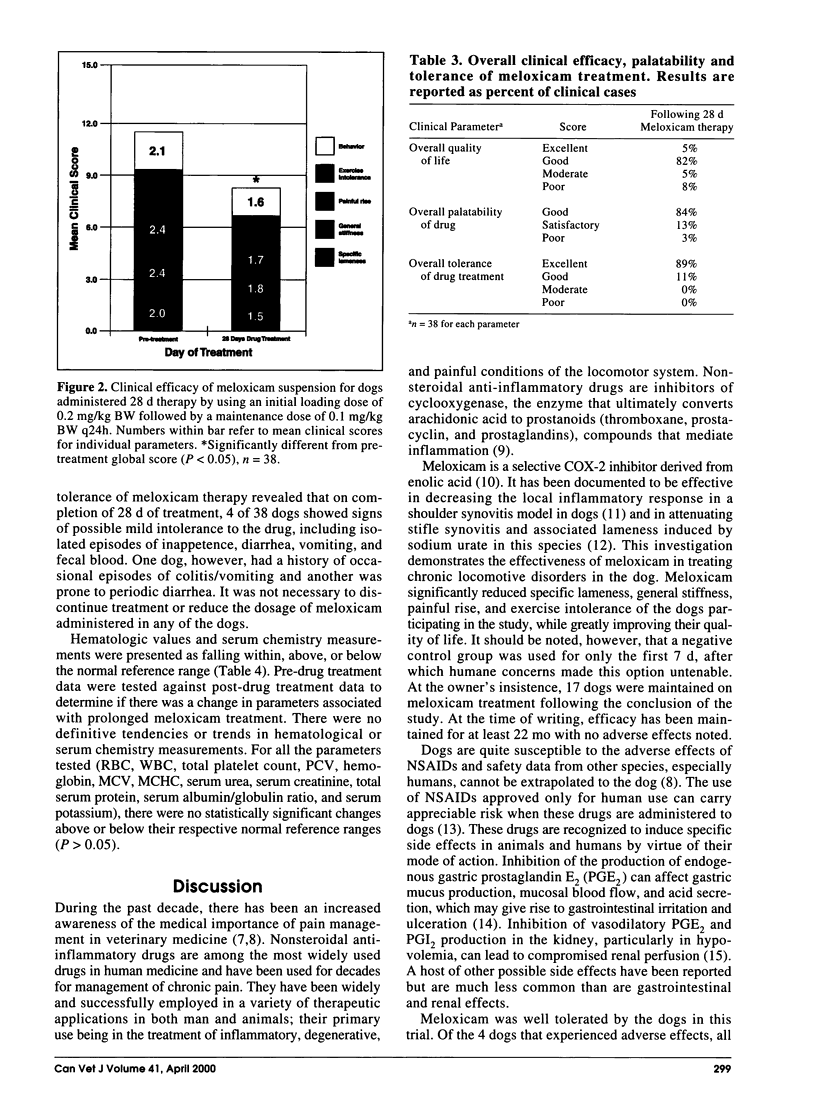
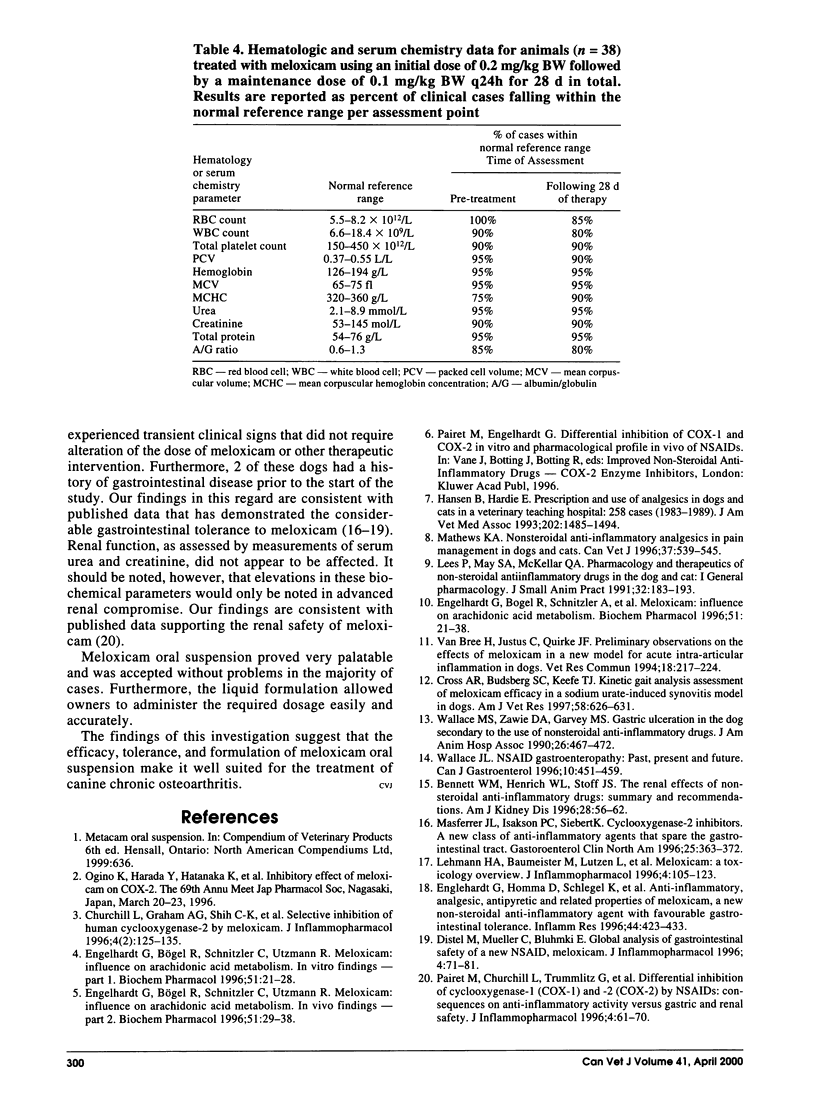
Images in this article
Selected References
These references are in PubMed. This may not be the complete list of references from this article.
- Cross A. R., Budsberg S. C., Keefe T. J. Kinetic gait analysis assessment of meloxicam efficacy in a sodium urate-induced synovitis model in dogs. Am J Vet Res. 1997 Jun;58(6):626–631. [PubMed] [Google Scholar]
- Engelhardt G., Bögel R., Schnitzer C., Utzmann R. Meloxicam: influence on arachidonic acid metabolism. Part 1. In vitro findings. Biochem Pharmacol. 1996 Jan 12;51(1):21–28. doi: 10.1016/0006-2952(95)02111-6. [DOI] [PubMed] [Google Scholar]
- Engelhardt G., Bögel R., Schnitzler C., Utzmann R. Meloxicam: influence on arachidonic acid metabolism. Part II. In vivo findings. Biochem Pharmacol. 1996 Jan 12;51(1):29–38. doi: 10.1016/0006-2952(95)02110-8. [DOI] [PubMed] [Google Scholar]
- Engelhardt G., Bögel R., Schnitzler C., Utzmann R. Meloxicam: influence on arachidonic acid metabolism. Part II. In vivo findings. Biochem Pharmacol. 1996 Jan 12;51(1):29–38. doi: 10.1016/0006-2952(95)02110-8. [DOI] [PubMed] [Google Scholar]
- Engelhardt G., Homma D., Schlegel K., Utzmann R., Schnitzler C. Anti-inflammatory, analgesic, antipyretic and related properties of meloxicam, a new non-steroidal anti-inflammatory agent with favourable gastrointestinal tolerance. Inflamm Res. 1995 Oct;44(10):423–433. doi: 10.1007/BF01757699. [DOI] [PubMed] [Google Scholar]
- Hansen B., Hardie E. Prescription and use of analgesics in dogs and cats in a veterinary teaching hospital: 258 cases (1983-1989) J Am Vet Med Assoc. 1993 May 1;202(9):1485–1494. [PubMed] [Google Scholar]
- Masferrer J. L., Isakson P. C., Seibert K. Cyclooxygenase-2 inhibitors: a new class of anti-inflammatory agents that spare the gastrointestinal tract. Gastroenterol Clin North Am. 1996 Jun;25(2):363–372. doi: 10.1016/s0889-8553(05)70252-1. [DOI] [PubMed] [Google Scholar]
- Mathews K. A. Nonsteroidal anti-inflammatory analgesics in pain management in dogs and cats. Can Vet J. 1996 Sep;37(9):539–545. [PMC free article] [PubMed] [Google Scholar]
- Van Bree H., Justus C., Quirke J. F. Preliminary observations on the effects of meloxicam in a new model for acute intra-articular inflammation in dogs. Vet Res Commun. 1994;18(3):217–224. doi: 10.1007/BF01839271. [DOI] [PubMed] [Google Scholar]
- Wallace J. L. NSAID gastroenteropathy: past, present and future. Can J Gastroenterol. 1996 Nov-Dec;10(7):451–459. doi: 10.1155/1996/850710. [DOI] [PubMed] [Google Scholar]



